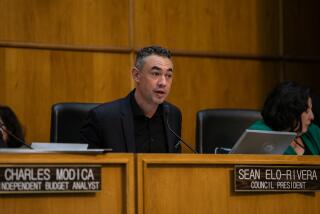Mexican gov’t pressured Supreme Court over 2012 Cassez ruling, justice says
Mexico’s Supreme Court received “a lot of pressure” from former President Felipe Calderon’s administration ahead of a 2012 decision on whether to immediately release French convicted kidnapper Florence Cassez, Justice Arturo Zaldivar told EFE in an interview Friday.
Zaldivar, who joined the Supreme Court in December 2009 after being nominated earlier that year by Calderon, drafted a controversial opinion that paved the way for Cassez’s eventual release on the grounds of due process violations.
“There was a lot of pressure, a lot, a lot of pressure, no doubt about it” from the previous administration, Zaldivar said of a March 21, 2012, vote in which a fivejudge Supreme Court panel voted 32 against his recommendation that Cassez be released immediately.
Although three justices cast “no” votes, four members of the panel said Cassez’s rights had been violated and asked Justice Olga Sanchez Cordero, who had voted for the Frenchwoman’s release, to draft a new recommendation.
Two days earlier, Calderon had urged the justices not to let legal interpretation open up a space for impunity, prompting thenSupreme Court Chief Justice Juan Silva Meza to demand respect for the principle of separation of powers.
Mexico’s relations with France became strained after Cassez was convicted in 2008 and given a 60year prison sentence for kidnapping and other crimes.
The thenFrench president, Nicolas Sarkozy, said the young woman was a victim of Mexico’s justice system, while Calderon accused her of belonging to an “extremely dangerous criminal gang.”
On Jan. 23, 2013, less than two months after current President Enrique Peña Nieto was inaugurated, the Supreme Court ordered her released when it approved Justice Sanchez Cordero’s recommendation, which Zaldivar says was a copy of his own opinion.
Zaldivar called the decision to release Cassez a “before and after in the history of due process in Mexico.”
When her case was being debated, he recalled, everyone considered due process to be a technicality, but today “everyone understands that due process is a human right” that authorities must uphold.
Cassez was arrested on Dec. 8, 2005, on the Mexico CityCuernavaca highway along with her boyfriend, Israel Vallarta, the suspected leader of the Los Zodiaco kidnapping gang.
After her arrest, Cassez was forced to take part in a filmed reenactment of a raid in which officers appeared to be freeing kidnapping victims in a wooded area near Mexico City and she was portrayed as one of the abductors.
The Frenchwoman also was denied consular assistance for more than 24 hours after her arrest.
“Now it’s unthinkable that a staged scene like the one that Florence Cassez took part in could happen in Mexico,” Zaldivar said, while acknowledging that the overturning of her 2008 conviction was “dramatically unpopular.”
Despite an avalanche of criticism from victims’ rights groups, Zaldivar said he was convinced he did the right thing and that the Supreme Court made the best possible decision.
He said the high court sent the message that “in a democratic state there are practices that cannot be tolerated” and that in combating organized crime human rights must be safeguarded.
Zaldivar also bristled at the suggestion that Cassez was freed because she was a foreigner, saying that most people whose rights have been protected by the Supreme Court after an unfair trial have not only been “Mexicans from the most disadvantaged classes” but also ethnic minorities.









